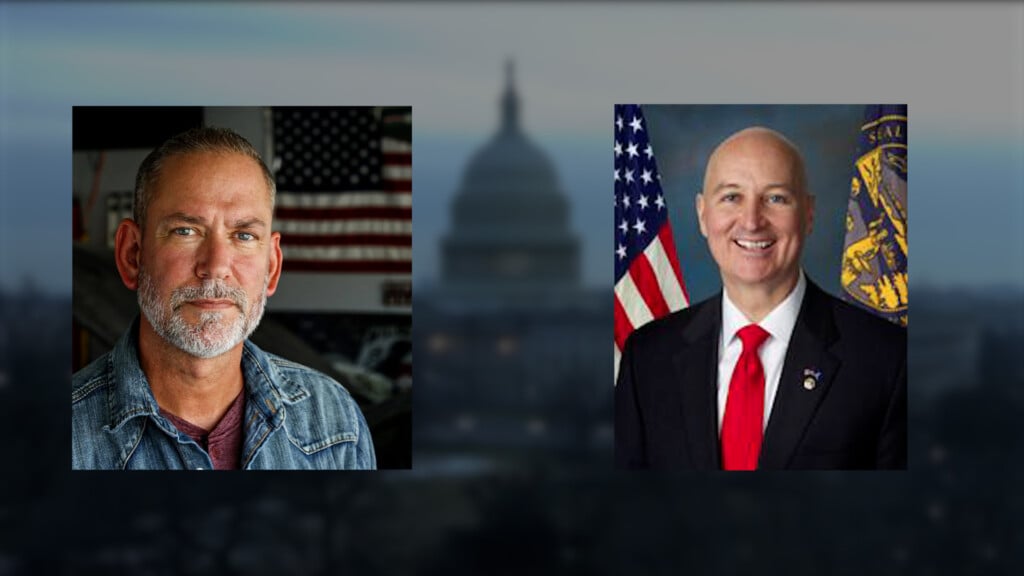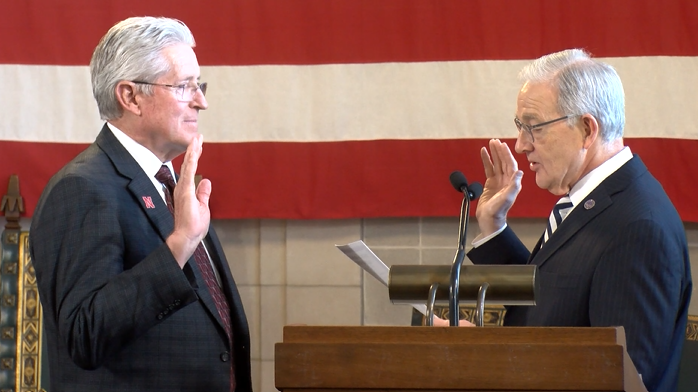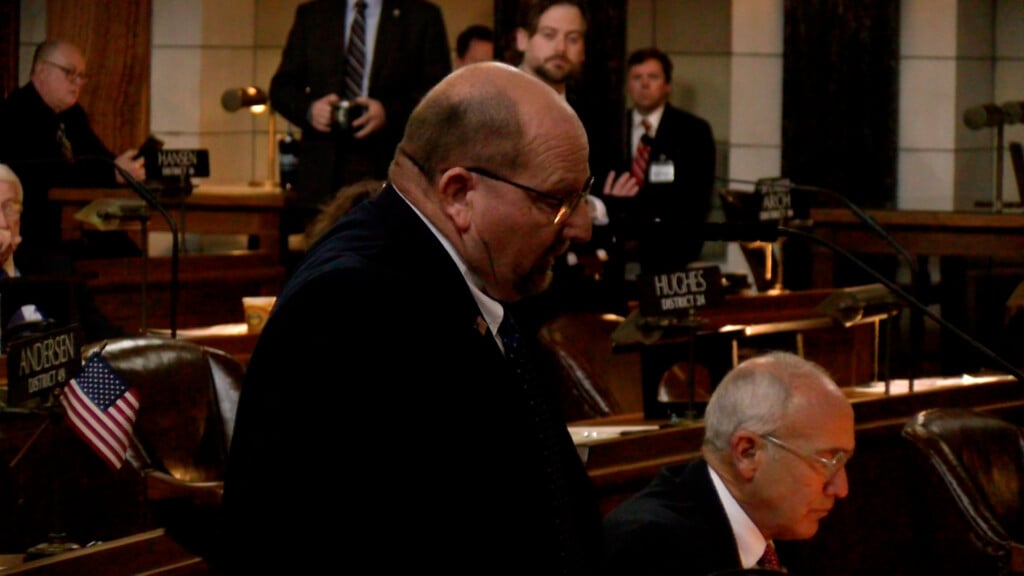Trump wins Iowa’s leadoff voting contest
DES MOINES, Iowa (AP) — Former President Donald Trump decisively won the Iowa caucuses on Monday, with his closest rivals languishing far behind, a crucial victory that reinforces his grip on the GOP at the outset of the 2024 nomination fight.
It was not immediately clear who would emerge as the second-place finisher, Florida Gov. Ron DeSantis or former United Nations Ambassador Nikki Haley.
Caucus voters endured life-threatening cold and dangerous driving conditions to participate in meetings that unfolded in hundreds of schools, churches and community centers across the state.
The results are just the first in what will be a monthslong effort for Trump to secure the GOP nomination a third consecutive time.
But the victory sends an unmistakable message to the Republican Party that the nomination is Trump’s to lose and crystalizes the challenge facing his GOP opponents.
Trump was already looking ahead to a potential general election matchup against President Joe Biden as he addressed hundreds of cheering supporters at a caucus site at the Horizon Events Center in Clive, Iowa.
“He is totally destroying our country,” Trump said of Biden. “We were a great nation three years ago, and today people are laughing at us.”
Biden’s team, meanwhile, announced that he and the Democratic National Committee raised more than $97 million in the last quarter of 2023 and finished the year with $117 million in the bank, an effort to demonstrate how Biden is preparing for a possible rematch while Trump is competing in the primary.
DeSantis and Haley are competing to emerge as the top alternative to the former president.
Haley hopes to compete vigorously in New Hampshire, where she hopes to be more successful with the state’s independent voters in the Jan. 23 primary.
DeSantis is heading to New Hampshire on Tuesday after a stop in South Carolina, a conservative stronghold where the Feb. 24 contest could prove pivotal.
Trump, meanwhile, was expected to fly to New York on Monday night so he could be in court Tuesday as a jury considers whether he should pay additional damages to a columnist who last year won a $5 million judgment against Trump for sex abuse and defamation.
He will then fly to New Hampshire to hold a rally Tuesday evening.
Iowa is an uneven predictor of who will ultimately lead Republicans into the general election. George W. Bush’s 2000 victory was the last time a Republican candidate won a contested race in Iowa and went on to become the party’s standard-bearer.
Trump showed significant strength among Iowa’s urban, small-town and rural communities, according to AP VoteCast.
He also performed well with evangelical Christians and those without a college degree.
And a majority of caucusgoers said they identify with Trump’s “Make America Great Again” movement.
One relative weakness for Trump comes in the suburbs, where only about 4 in 10 supported him.
AP VoteCast is a survey of more than 1,500 voters who said they planned to take part in the caucuses. The survey is conducted by The Associated Press-NORC Center for Public Affairs Research.
Entrepreneur Vivek Ramaswamy and former Arkansas Gov. Asa Hutchinson were also on the ballot in Iowa, as was former New Jersey Gov. Chris Christie, who suspended his campaign last week.
The U.S. Supreme Court is weighing whether states have the ability to block Trump from the ballot for his role in sparking the Jan. 6, 2021, riot at the U.S. Capitol. And he’s facing criminal trials in Washington and Atlanta for his efforts to overturn the 2020 election.
Through it all, Trump has used his legal problems as a political asset.
Over the last week alone, Trump chose to leave the campaign trail on two separate occasions to make voluntary appearances before judges in New York and Washington.
In both cases, he addressed the media directly afterward, ensuring that national coverage of his legal drama would make it more difficult for his Republican rivals to break through in Iowa.
Trump has also increasingly echoed authoritarian leaders and framed his campaign as one of retribution. He has spoken openly about using the power of government to pursue his political enemies. And he recently shared a word cloud last week to his social media account highlighting “revenge,” “power” and “dictatorship.”
Trump’s legal challenges appear to have done little damage to his reputation, as the charges are seen through a political lens.
About three-quarters say the charges against Trump are political attempts to undermine him, rather than legitimate attempts to investigate important issues, according to AP VoteCast.
Meanwhile, Iowa caucus participants were forced to brave the coldest temperatures in caucus history as forecasters warned that “dangerously cold wind chills” as low as 45 degrees below zero were possible through noon Tuesday.
The conditions, according to the National Weather Service, could lead to “frostbite and hypothermia in a matter of minutes if not properly dressed for the conditions.”
The Associated Press declared Trump the winner of the Iowa caucuses based on an analysis of early returns as well as results of AP VoteCast, a survey of voters who planned to caucus on Monday night. Both showed Trump with an insurmountable lead.
Initial results from eight counties showed Trump with far more than half of the total votes counted as of 8:31 pm. ET, with the rest of the field trailing far behind. These counties include rural areas that are demographically and politically similar to a large number of counties that have yet to report.
AP VoteCast also shows Trump with sizable leads among both men and women, as well as every age group and geographic regions throughout the state.
AP VoteCast is a survey conducted by the AP-NORC Center for Public Affairs Research of more than 1,500 voters who said they planned to take part in Monday’s Republican caucuses in Iowa.
Among voters who identify as born-again Christians, the survey found that Trump was favored by 58% voters intending to caucus, compared to 18% for DeSantis and 13% for Nikki Haley. Polls showed that was a relatively weak group of backers for Trump in Iowa in 2016.
So far, Trump is significantly outperforming his second-place 2016 caucus finish, when he received 24% of the vote, compared to 28% for Ted Cruz.



